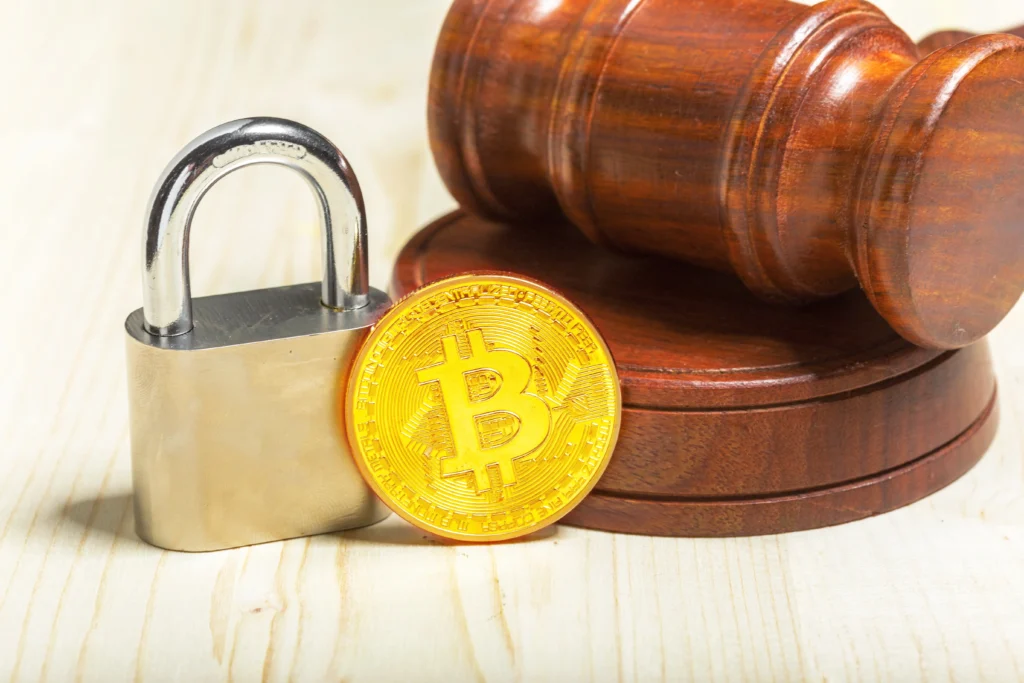Innovations in Cryptolaw
Introduction
As tech moves at inconceivable speeds, the area where blockchain and the law meet has become a very important problem in both the business and legal worlds. Cryptolaw is growing and changing quickly, just like the digital market. This is different from other fields of law. Cryptolaw is a broad field that includes everything from government systems and compliance to the legal effects of new technologies in the future. Talks about the most important developments in cryptolaw and how they are changing the law and setting new standards for the future.

Guides and regulatory frameworks
Because digital information are so new and complicated, the rules that govern them have been open and changing. It has become much easier to understand and follow the rules for handling cryptocurrency as different places try to solve the issues they cause. This change is needed to make things clear and safe in a world that would not be clear or for both business and users. New ideas in cryptolaw are at the forefront of this change in the law. A lot of countries are working hard to make strong systems that deal with big issues like stopping terrorists from getting money (CFT) and fighting money laundering (AML). In these systems of governance, old financial rules will be mixed with new rules that are made just for digital products.
So that the difficult world of digital money can be dealt with, the laws must always be changing. Laws need to change to keep up with new digital and bitcoin technology and make sure that rules are still useful and followed. While also making sure that the authorities has enough power to handle any risks or problems that might come up, rules need to be continually enhanced in order to foster creativity.
Smart Contracts and Automated Law
The rise of smart contracts is one of the most important changes in cryptolaw. Self-executing agreements are written in code and stored on a blockchain. When certain conditions are met, the terms of a contract will be carried out. The idea of electronic agreements is a big step forward in legal technology. It has many benefits, such as fewer agents, fewer disputes, and more openness.
Blockchain software is used in digital contracts to keep a lasting record of all exchanges. The rules of smart contracts are set in stone on the blockchain once it is activated. It’s very hard to change or mess up the deal because of this. This makes internet contracts more secure because everyone can check the terms and efficiency of the deal without having to rely on just one person.
Smart agreements could be used for a huge number of different things. Smart contracts can make it easier to do things like buy and sell land, keep an eye on the supply chain, and make business deals. For example, when someone funds for a house in the real estate sector, smart contracts can instantly change who owns the house. It’s very hard to get smart contracts recognized by the law. People continue to argue about whether smart contracts should be seen as real contracts, since they are written in code instead of legal language. Normal legal systems might not work well with smart contracts that so it can be hard to settle differences that happen because of errors in the rules or things that were not planned.
No matter what, the benefits of smart contracts—such as better access, cheaper rates, and higher efficiency—keep people excited and spark new ideas in this area. Electronic agreements need to be recognized and dealt with in a way that takes into account distinctive characteristics before they can be widely used and put into legal systems. As technology gets better, lawyers need to think about how to change old rules so that electronic agreements can be used.

Privacy and safety of personal information
Privacy and security of your data are very important when it comes to blockchain and cryptocurrencies technology.
To fix these issues, researchers are looking into fresh safety methods that can boost privacy while keeping blockchain operations stable. When it comes to privacy, zero-knowledge proof and homomorphic codes look like good choices. Zero-knowledge evidence let someone show that a statement is true without giving away any other information. Homomorphic encryption, on the other hand, lets sums be done on encrypted data without first decoding it. These methods can help protect anonymity by decreasing the amount of private information that is utilized during business deals.
It is important to protect privacy and build trust in digital currencies by adding these safe ways to blockchain technology. As the blockchain system gets better, it will be important to find the right balance between private and access to keep the internet safe. To keep up with these changes, legal systems need to adapt. They need to make sure that privacy security stays of the utmost while they back the growth of blockchain-based technology.
Enforcement and jurisdiction across borders
Cryptocurrencies have made it harder to follow laws and rules across borders because they are used all over the world. Digital currencies are used all over the world, while traditional banking systems are bound to certain national lines. This makes legal systems face new challenges. As cryptolaw advances, people are working to solve these issues by making it easier to deal with the global parts of digital assets.
A major issue is that there isn’t a single set of laws that cover cryptocurrencies. This means that there may be problems and holes between different areas of law. It’s more challenging to rule because choices aren’t always carried out properly in different places. To show this, let’s use a debate about cryptocurrency. When people are from different countries, it can be tricky to figure out which country has the power and how to carry out a decision.
The Financial Action Task Force (FATF) guidelines and the creation of foreign working groups are two ways that these problems are being dealt with. By making rules for controlling virtual assets and virtual asset suppliers, it aims to improve international cooperation and make the rules for digital currency more even. Because of these rules, issues like AML and CFT can be handled more regularly across countries. This makes it easier for companies to work together.
As digital information spread around the world, it will be very important for states to work together and agree on how to keep the banking system safe and strong. While it can be helpful to have power and fines that span countries, legal systems need to change in order to make sure that rules are followed consistently and fairly everywhere.
Problems with the law and decentralized financial systems (DeFi)
Decentralized Finance, or DeFi, is a big step forward for cryptocurrencies. To offer banking services without agents, it comes up with new ways to do things. Private services like trade, loans, and leasing are offered by DeFi sites that use blockchain technology. There are new legal problems that come up because Deb wants to make banking easier for everyone to get and to come up with new ideas.
Following the rules is a big problem. Regulatory systems that are usually made for big businesses don’t work well with DeFi platforms that run themselves. On open systems, Know Your Client ( KYC and AML, or anti- rules may be hard to adhere to because there isn’t a single group in charge of customer registration.

Another important issue in the DeFi setting is keeping people safe. When there aren’t any agents or government control, people may be more likely to fall for scams, get hacked, and lose their money. The goal of new developments in cryptolaw is to make laws that deal with these risks and build an environment that supports new ideas. Among other things, this means looking into new ways to rule that can handle the unique aspects of DeFi systems well and put user safety first.
In the DeFi setting, duty is also a big problem. In old financial systems, it is usually easy to see who is responsible for losses or disagreements. On the other hand, DeFi sites don’t have a central authority, so it’s tough to figure out who is to blame when something goes wrong. There needs to be a change in the system of justice so that people are able to get help and find solutions.